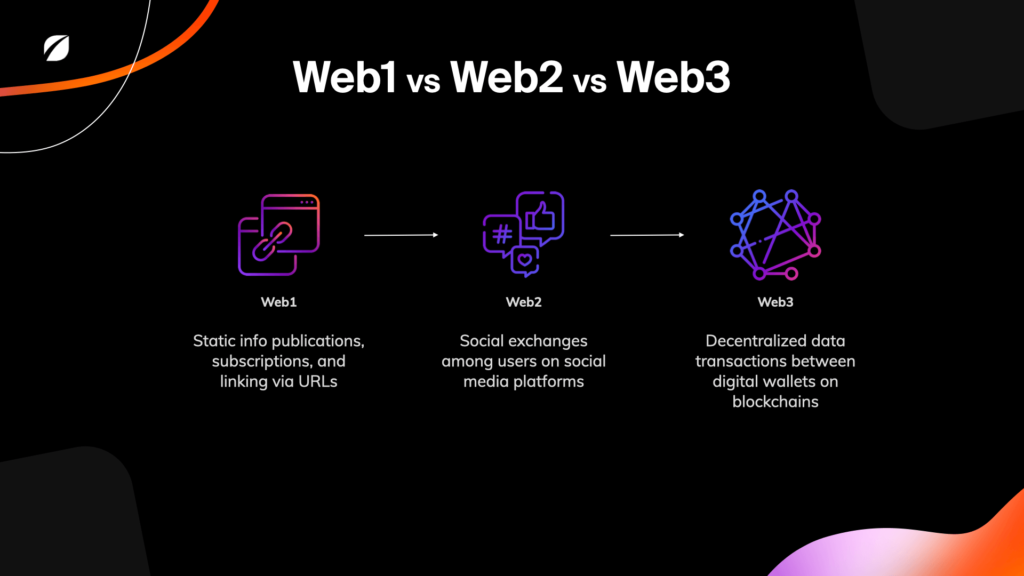Article
What’s the Difference Between Web1, Web2, and Web3?

Web1 is a web of static information that links to each other. Think of a self-hosted, personal web page or a blog using a platform such as WordPress or Squarespace. You primarily share the information with others via URLs.
Web2 is a web of social interactions linking users to each other. Think of social media sites such as Instagram and Twitter where you share and consume algorithm-based data feed managed by tech companies. You often share information within the platform by liking, sharing, re-posting with your own comments, and more.
Web3 is a web of decentralized information linked within a public ledger. Think of buying/selling an NFT art on a certain blockchain ecosystem where you can see the full history of past owners and how many tokens they were exchanged for. You primarily interact with the chain of information via digital wallet transactions.
Just like Web2 evolved from Web1 where it added a social dimension to information sharing, Web3 is the next evolution of Web2 where information is exchanged in full transparency with no central governance.
The smart way to leverage Web3
Instead of approaching Web3 as its own technology to build your business on, think about how to incorporate it on top of your existing Web1/Web2 business architecture.
For example, a blog/newsletter/forum (the Web1 model) can sell membership access to exclusive content to its NFT holders where only 10,000 people in the world have access to them. You can set up the NFT in a way where you make a profit every time an NFT holder sells its membership rights to another party.
Another example is where brands can reach a whole new set of audiences in virtual world platforms by creating virtual wearables for avatars or they create their virtual HQ on land that they own on a blockchain.
Please comment on other ways to leverage Web3 in existing businesses, or if you need help identifying an opportunity for your business!
What other ways can Web3 be leveraged in existing businesses? Let us know!









